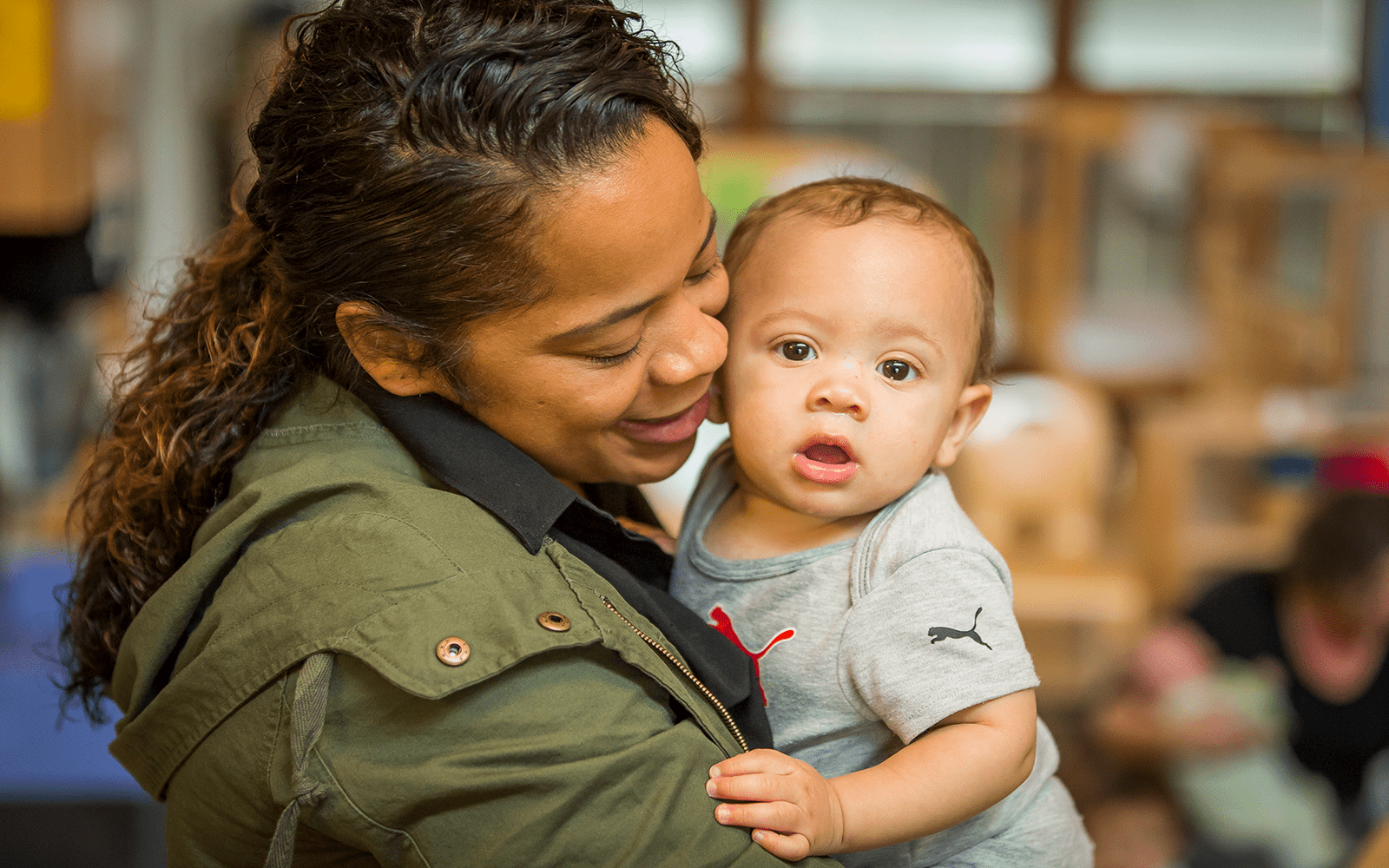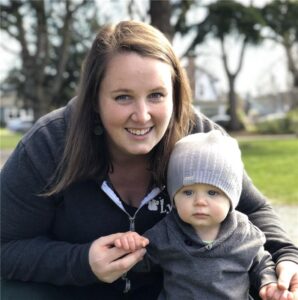At Start Early Washington, we know that the early years are the foundation for a child’s lifelong development—and no one captures the importance of this work better than those who’ve worked with new families firsthand. Hannah Vandermay, Parents as Teachers (PAT) Training and Technical Assistance Specialist, brings a deep well of experience, empathy, and wisdom from her years walking alongside families through some of their most vulnerable moments.

Hannah Vandermay on Trust, Care, and Connection
Discover the powerful story of Hannah Vandermay, a Parents as Teachers specialist at Start Early Washington, as she shares how supporting families during the early years can shape a child’s future and bring lasting impact.
Stay Connected
Sign up to receive the latest early learning program and policy news in Washington state.

Hannah’s journey into supporting families didn’t begin in an office or a classroom. It began as a teenage intern, teaching life skills to young adults—many of whom were barely older than she was. “I was 17 years old, living at home, teaching independent living classes to 18-21 year olds about managing leases and budgeting,” she recalls. That early experience opened the door to a career rooted in service and compassion. Over the years, she worked with foster families, children in care, and families experiencing homelessness—building a systems-level understanding of the barriers families face and how to support them before crisis hits. But what moved Hannah most was the realization that so many of these systems were stepping in too late.
I was working with kids who had already experienced so much trauma. It felt like we were playing catch-up,” she says. “I wanted to work upstream—to help prevent that trauma from happening in the first place.
That realization led her to home visiting. Through her work with Lydia Place, a nonprofit serving families experiencing homelessness in Bellingham, Washington, Hannah saw firsthand the transformation that comes when families not only find housing but are also met with consistent, caring support through parenting services supports like Parents as Teachers.
“Moving into housing is a huge milestone, but it doesn’t make everything easier right away,” she explains. “Families go from surviving day-to-day to facing all the pressures that come with stability—bills, expectations, isolation. That’s when parenting challenges often hit the hardest. Home visiting helps families navigate that transition, not just logistically, but emotionally.”
In home visiting, Hannah found a way to bridge prevention with empowerment—walking alongside families through both the challenges and the celebrations. It’s really about more than resources, she emphasizes. It’s about being present.
“When families are in survival mode, they often feel like they’re failing, especially when they don’t have a support system,” she shares. “Many of the families I’ve worked with couldn’t name a single person in their life they could rely on. So we became that consistent presence. Someone to notice their wins, to say, ‘You’re doing something different. You’re changing the story for your kids.’ That means everything.”
For Hannah, the most powerful part of this work is helping parents reconnect with their instincts—and learn to trust themselves. “A lot of parents I supported had already lost children or been through traumatic systems. They didn’t trust their own judgment. But we would remind them: You get to write a new story. You are the expert in your child’s life.”
That mindset shift—helping parents separate behavior from emotion, celebrate the small victories, and learn new ways of seeing themselves—is core to what makes home visiting work. It’s not about doing it for families; it’s about doing it with them.
“We often think we need to fix behavior or stop big feelings, but really it’s about helping kids—and parents—learn to navigate those emotions,” Hannah explains. “If a toddler is climbing everything, maybe they need a safe place to climb. It’s not about stopping the behavior; it’s about understanding the need behind it.”
Throughout her career, Hannah has witnessed the shift in the field—from rigid systems that focus on compliance to more flexible, human-centered approaches that ask: What do families really need? Sometimes, it’s as simple—and as powerful—as a washing machine, a supportive conversation, or someone showing up consistently.
Home visiting is about presence. It’s not always about having all the answers or the perfect resource. Sometimes the biggest impact comes from sitting with a parent and helping them see the difference they’re making, even on the hardest days.
As a training and technical assistance specialist, Hannah now supports programs across the state, ensuring they meet model fidelity and their funders’ expectations, while keeping central the importance of the parent/home visitor relationship. And her message is clear: home visiting changes lives—not because it fixes everything, but because it honors the journey, lifts up the parent’s voice, and keeps believing in families, even when systems don’t.
In a world that often tells struggling parents what they’re doing wrong, home visiting offers something else: a mirror, a cheerleader, a partner in the process. And that, says Hannah, is where the real transformation begins.
Start Early Washington is grateful for the support from the MJ Murdock Foundation enabling us to add valuable staff capacity to our team.
About the Author

Hannah Vandermay
Parents as Teachers Training and Technical Assistance Specialist, Start Early Washington
Hannah Vandermay provides training and technical support for Parents as Teachers supervisors and home visitors.
Washington State Hub
Learn more about our work in Washington state and access relevant resources and publications.
Stay Connected
Stay up to date on early childhood policy issues and home visiting programming in Washington state.
Resources for Professionals
From interactive courses to engaging events, we support educators in building powerful practices that transform teaching and learning.
